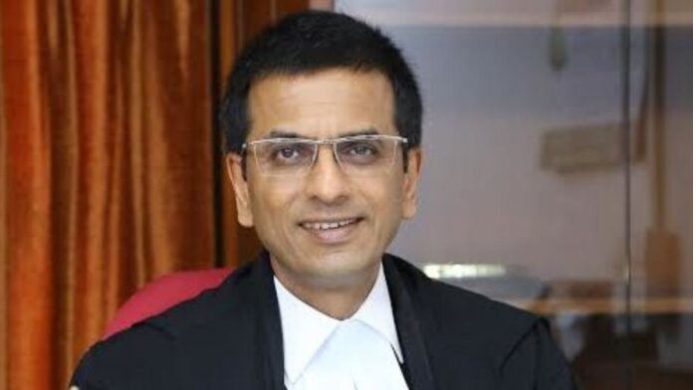CJI Chandrachud endorses adoption of mediation for resolving legal disputes, says has potential to de-clog courts
Chief Justice of India D.Y. Chandrachud has urged upon the people, as well as the Union of India, to go for meditation to resolve their legal disputes, saying that the alternative dispute resolution procedure had the potential to de-clog the courts.
Delivering the presidential address at the inauguration of National Conference on Mediation on the topic ‘Mediation: At the Dawn of a Golden Age’ on Friday, the CJI told the Central government that since it was the largest litigator of the country, this would send a right message across the country.
The Central government opting for mediation to solve legal disputes would assure the people that in the framework of law, the government was not an adversarial opponent to its citizens, he noted.
He further urged the Centre to ‘adopt’ the robes of a friend, partner and problem solver, be it in terms of business, communities or families, noting that the Union government should make it its motto, to ‘mediate’ and not ‘litigate’.
Stating that mediation held the potential to change the way the country understood justice, the CJI observed that it took the justice system towards a zero-sum outcome by promoting an alternative, collaborative and interest-based concept of justice focused on enabling parties to move forward constructively, adding that it was more than a movement to unclog the courts.
As per the CJI, just like the processes of dialogue, negotiation, compromise and consensus building formed the bedrock of making of the Indian Constitution, mediation, in a similar way, was a process that involved resolving of disagreements by way of an open dialogue and mutual understanding between the stakeholders with different viewpoints, allowing them to find a common ground.
He said the drafting of the Constitution and mediation may seem unrelated, but they actually shared normative goals as the goal in both the cases was to create a framework, which was inclusive and reflective of the values and aspirations of the people involved.
The CJI went on to say that the Constitution of the country was itself a document borne out of a mediation process, wherein the framers recognised the need to create a document that should reflect the will and aspirations of people, besides resolving many disagreements.
He said mediation had an important message for all citizens, particularly in today’s fraught times, when people had forgotten to engage in reasoned dialogue with others from opposite ends of the spectrum.
The least formal dispute resolution mechanism provided timely and affordable justice to all and also helped in reducing the burden of judicial caseload, he added.
It placed the decision-making authority in the hands of ordinary people, empowering those who were involved in disputes to determine not only the outcomes of their disputes, but also the criteria and standards by which those outcomes were evaluated.
The CJI said the ability of mediation to envisage an alternative conception of justice, which was more inclusive, personalised and democratic, could not be understated in a country like India, where the values such as trust, community, social harmony and good relations were held on a high pedestal.
Organised by the Delhi High Court Mediation and Conciliation Centre, known as ‘Samadhan’, under the aegis of the National Legal Services Authority (NALSA) and the Mediation and Conciliation Project Committee (MCPC) of the Supreme Court, the event witnessed participation from Supreme Court judges – Justice Sanjay Kishan Kaul, Justice PS Narasimha, Justice Ahsanuddin Amanullah and Justice Rajesh Bindal.
Chief Justice of Delhi High Court Satish Chandra Sharma, other judges of the High Court, Attorney General R. Venkataramani, among others graced the occasion.


